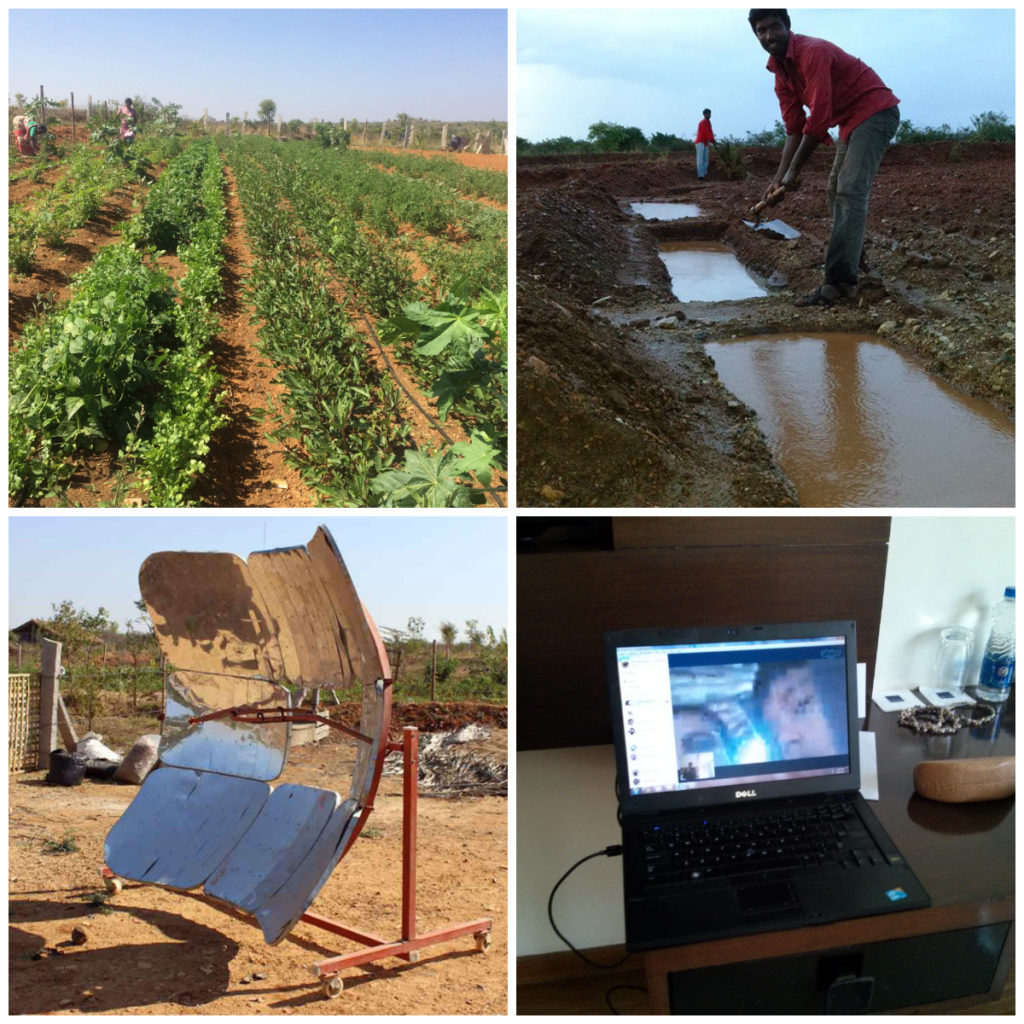It might take a village to raise a child— as the proverb goes— but in Andhra Pradesh, a state on the Southeastern coast of India, a village is raising the aspirations of the over 35,000 residents in its region and redefining what it means to be “resilient”.
Chilamathur Mandal, an administrative division in the state of Andhra Pradesh, has become India’s first member of the BreatheLife campaign, inspired by the ingenuity of a single village within its fold.
ProtoVillage, an “intentional community” formed by the area’s villagers, began with 10 families from Tekulodu village, on a marginal piece of land in a drought-prone district, into which they ploughed sustainability solutions— windmills, solar panels, solar cooking, rainwater harvesting, mulching and enriching soil with organic matter and afforestation— with the aim of creating a model of a resilient village.
Resilience, in this case, is defined as having sustainable access to “food, water, shelter, clothing, healthcare, energy, trade, connectivity, education and disaster management”— so the village is also wifi-enabled, using direct line-of-sight technology.

Some features of ProtoVillage: sustainable agriculture, rainwater harvesting, solar cookstoves and internet connectivity. Wind turbines and solar PV arrays add to the community’s energy self-reliance. Photos by ProtoVillage
ProtoVillage began as the brainchild of MBA-educated Kalyan Akkipeddi, who, in a bid to understand and solve the problem of poverty in his country, spent two and a half years travelling through rural India, across a tribal belt from Kutch in the West of India to the Sundarbans in the East, relying on the kindness of villagers the entire time.
“The people who fed and housed me were those living on less than $1 a day,” he said.
So convinced was he that solving poverty had less to do with eradication than building abundance that in 2010, Akkipeddi, along with his wife Shobitha, gave up their life in the city, sold their assets and bought the piece of land in Tekulodu village– and moved there.
“We realized through this work that the villagers respect people who demonstrate solutions rather than just talk about them, so show them rather than just tell them,” said Akkipeddi.
They started by working with a single family whose annual income at the time was 7,000 Indian rupees ($150), which was ready to migrate out of the village for lack of opportunities.
Eight years later, the ProtoVillage has other villages in the region knocking at the door of their Visitor’s Centre, looking to replicate the community’s resilience in one of the driest regions in the country.
It is about to expand– it has since purchased 12.5 acres of land within the same village cluster, with the plan to develop a “role model rural community” that could form the basis for learning, practice and dissemination of knowledge to support any community interested in organizing itself for resilience.
That original family now earns 14,000 Indian rupees per month and is self-reliant in terms of its basic needs.
“I believe the reason why communities disintegrate is that the role models that reinforce disintegration through consumption driven growth overwhelmingly outnumber the role models that reinforce resilience,” said Akkipeddi, “so, the solution is to build a whole lot of good role model communities across the country– at least one for every district.”
It is also growing the scope of this self-sustaining model: the community is exploring the possibility of making fabrics with plants that grow easily in the region, and have built and plumbed 60 individual household toilets that feed into a common biogas plant in the hopes of using the gas it generates to power their soap-making enterprise.
It was this last initiative in particular that caught the attention of rest of the region of Chilamathur Mandal, which wants to follow suit, noting that it dealt with the village’s waste disposal while generating clean energy that was put to productive use, and, on a wider scale, could encourage sanitary toilet usage.
This also feeds into its BreatheLife commitment to reduce air pollution, including climate pollutants, from the sectors of waste management, food and agriculture and household air pollution.
As it stands, according to the mandal, hundreds of farmers in the region have already been converted to natural farming methods, but ProtoVillage continues to promote natural farming, particularly mulching, in the hopes of cutting down on one of India’s persistent seasonal sources of air pollution: agricultural burning.
The mandal authority and ProtoVillage also aim to create awareness of the health risks associated with coal and wood-burning and to promote energy efficient and earth-friendly shelter options like those used to build the Visitor Centre, tool sheds, study centre and community kitchen.
Akkipeddi and his wife are now raising their children in the community they started, and hope the village they’ve led to greater sustainability will raise a nation of good role model communities.
Chilamathur’s participation in BreatheLife was launched on Saturday, 22 December, at a BreatheLife concert headlined by Grammy award-winning artiste Ricky Kej.
Watch Kalyan Akkipeddi tell the story of ProtoVillage: A Search for Resilience on TED Talks
Follow Chilamathur Mandal’s clean air journey here.
Banner photo by Bhoomi College/CC BY-NC 2.0.